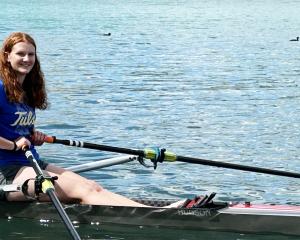
The Central Otago Youth Employment Programme, designed to help get teens on track, was piloted at Dunstan High School and Cromwell College in 2017.
This year, it expanded to include Mount Aspiring College and Wakatipu High School.
Facilitator Jenna Faulkner said last year, 14 pupils from Cromwell College and Dunstan High School were offered apprenticeships or cadetships and the remaining six stayed at school to study NCEA level 2 and 3 subjects.
Due to the programme’s success, it would be rolled out to all New Zealand high schools, possibly by the end of the year, she said.
The programme connects 15-year-olds with employers, allowing them to learn on the job and work towards NCEA over a year. Trades they are supported in so far include building, mechanics, farming, shearing, engineering, plumbing and motorcycles.
Any credits the pupils require are worked through in the classroom. The pupils are required to go to school one day a week, where they work towards a 95-credit work package programme, delivered through Otago Polytechnic.
Pupils gain literacy and numeracy credits and skills to set them up in their chosen industries.
There are 10 participants from each school on the programme.
All children who fit the criteria would get the extra support they required, Mrs Faulkner said.
The programme had made improvements to the lives of many children, many of whom were not interested in sitting in a classroom all day and, in some cases, had started slipping into patterns of truancy.
"About 80% of the pupils work three to four days a week — they might do a one-day Trades Academy course at Otago Polytechnic, then do the COYEP work packages where they are in school for one day."
The programme gave pupils options and career paths, she said.
"A lot have stayed on to do level 2 and level 3."
Otago Polytech funds the programme and Mrs Faulkner welcomed businesses that wanted to invest in the programme to get in touch.
"It’s a win-win. I’m delivering them really good pupils — they have to meet certain qualities."
Those qualities included good time management and listening skills and being able to follow instructions.
Ultimately, pupils had to have a "willingness to learn and further their career" in their chosen industries.














